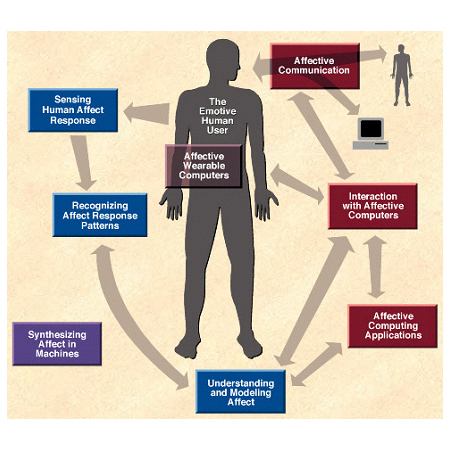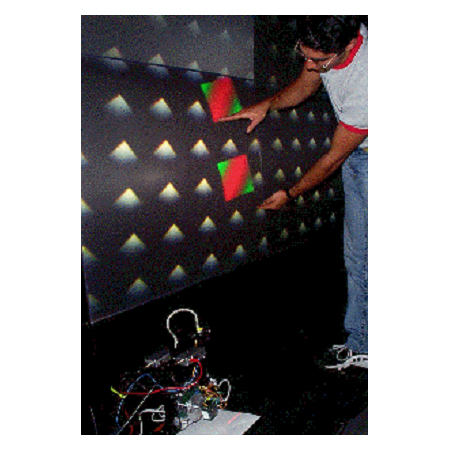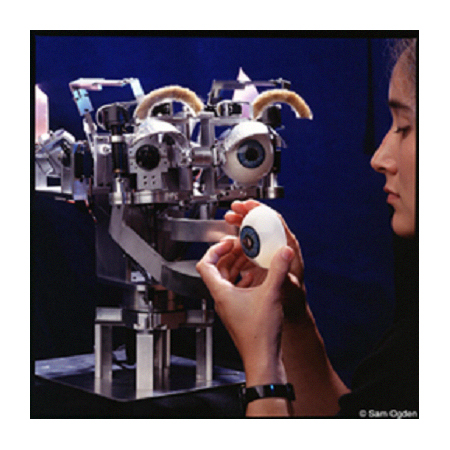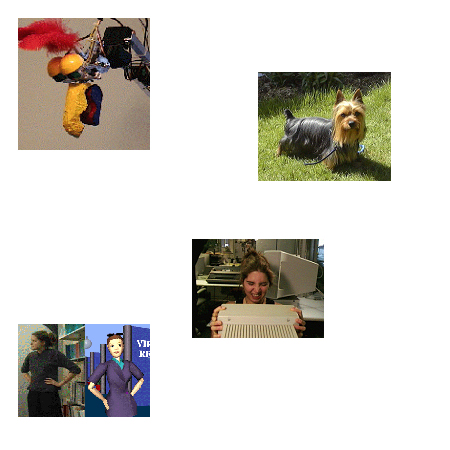
Systems that possess the everyday commonsense and social savvy found in animals and people. Embodied presence is enabling us to project digital persona onto a variety of physical objects and environments.
The Society of Mind group focuses on imparting to machines the human capacity for
commonsense reasoning: How commonsense and imagination are resultant from negotiations among different
cognitive processes.
Marvin Minsky
The Synthetic Characters group explores the nature of intelligent behavior: The kind of everyday
commonsense displayed by animasl that ensures that “they do what they ought to do,” and “learn what they
ought to learn,” and utlimately evoke a sense of empathy.
Prof. Bruce Blumberg
The Affective Computing group aims to bridge the gap between computational systems and
human emotions through machine recognition and modeling of human emotional expression, and machine learing
of human preferences as communicated by user affect.
Prof. Roz Picard
The Responsive Environments group explores new sensing modalities and enabling technologies that
create new forms of interactive experience and expression that range from interactive music systems
to wearable computers to medical instrumentation.
Dr. Joseph Paradiso
The Robotic Presence group aims to straddle both the physical and social worlds of people.
Inspired by animal and human behavior, the group's goal is to build capable robotic creatures with a living presence:
socially savvy, physically adept, and pocessing everyday commonsense.
Prof. Cynthia Breazeal
Embodied
Presence











